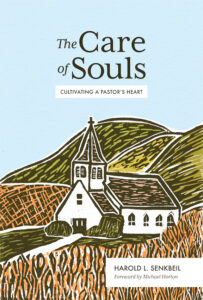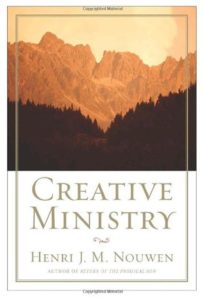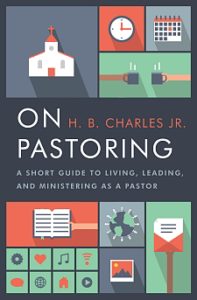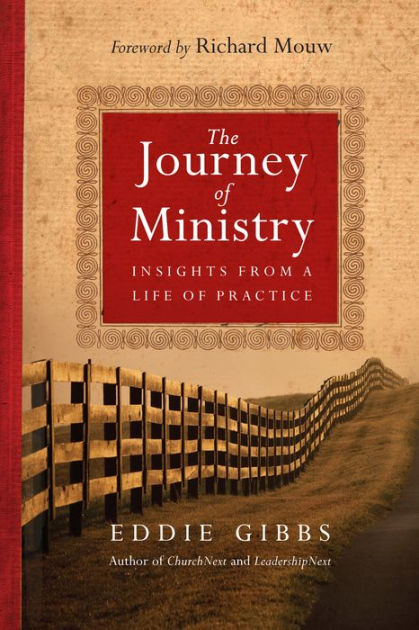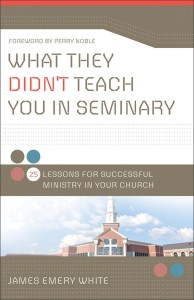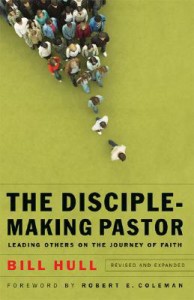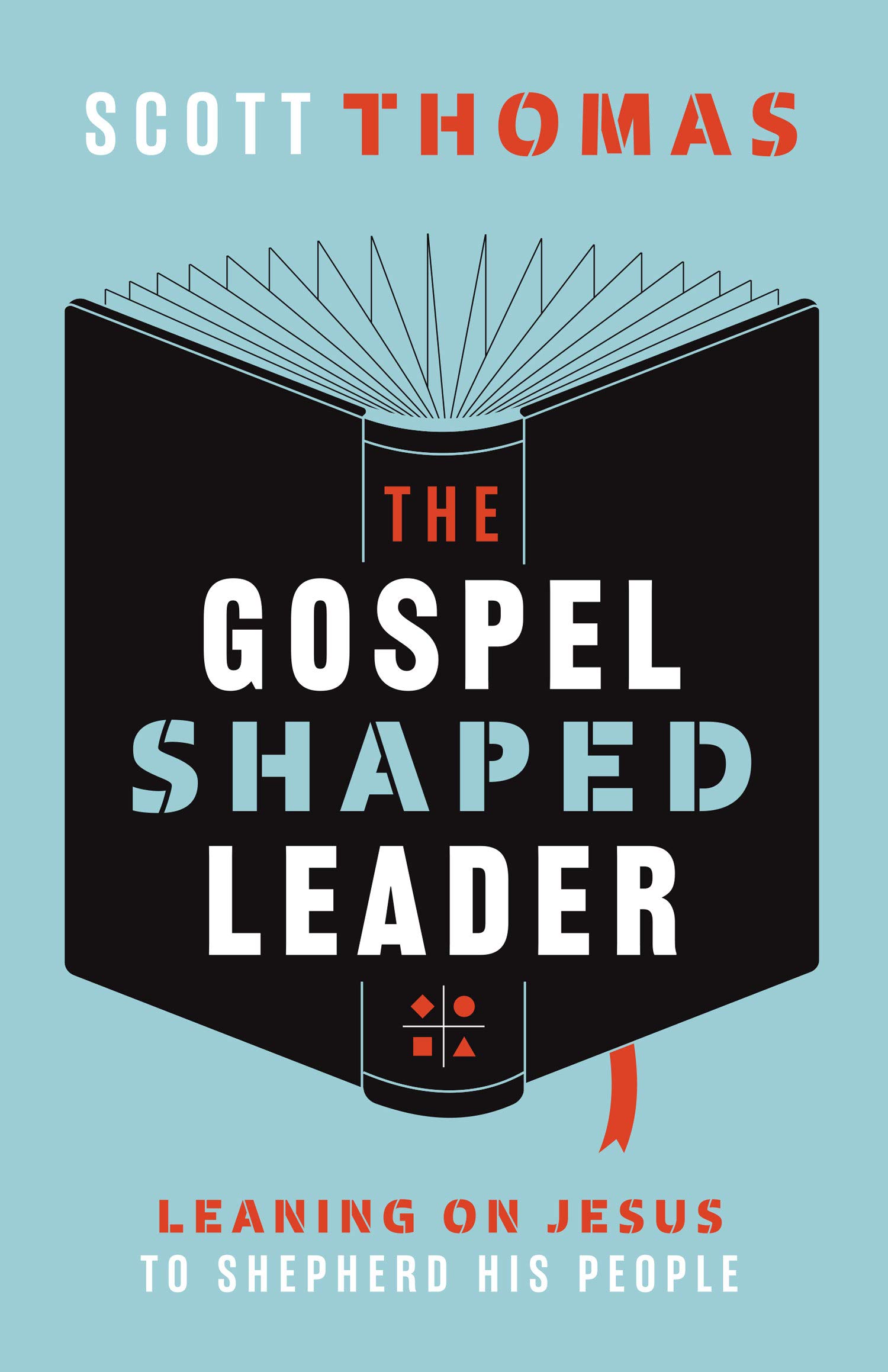“A pastor’s books are as essential as the furniture of his home.” Derek Prime and Alistair Begg, “On Being a Pastor.”
Top-shelf books to “furnish” your life and ministry, Pastor.
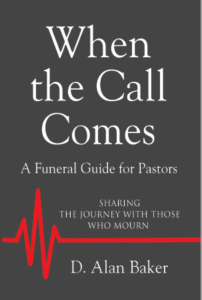
WHEN THE CALL COMES: A FUNERAL GUIDE FOR PASTORS
SHARING THE JOURNEY WITH THOSE WHO MOURN
D. ALAN BAKER
From the Publisher: A practical guide to sharing the journey with those who mourn.
Pastors often cite funerals as among the most daunting ministries they face, one for which they feel least prepared . . .
“What is the purpose of a funeral and why have one?”
“What is my role as a pastor, walking families through grief?”
“What should I say when I meet with the family for the first time?”
“What do I do in the case of a difficult death: suicide, violence, or infant death?”
“How do I conduct a funeral?”
“What do I do when ‘the call’ comes?”
“When the Call Comes” is designed to help ministers answer these and other questions as they walk with families in grief. It examines the “whats,” “hows,” and “whys” of funeral ministry, from the initial call to the conclusion of the graveside service.
Included are resources pastors can use to help them prepare effectively for each funeral and graveside service: Scripture references, committal statements, benedictions.
THE CARE OF SOULS: CULTIVATING A PASTOR’S HEART
HAROLD L. SENKBEIL
From the Publisher: Drawing on a lifetime of pastoral experience, The Care of Souls is a beautifully written treasury of proven wisdom which pastors will find themselves turning to again and again.
Harold Senkbeil helps remind pastors of the essential calling of the ministry: preaching and living out the Word of God while orienting others in the same direction. And he offers practical and fruitful advice―born out of his five decades as a pastor―that will benefit both new pastors and those with years in the pulpit.
In a time when many churches have lost sight of the real purpose of the church, The Care of Souls invites a new generation of pastors to form the godly habits and practical wisdom needed to minister to the hearts and souls of those committed to their care.
The JPC 60-Second Review: In a word, this is a work on “pastoral care,” not only in the sense of the work pastors do in giving spiritual, emotional, and social support to members of their church, but in its fullest sense. It begins with the pastoral heart: what is a pastor – what is the DNA of a pastor and the pastoral call. It continues with the first ministry of the pastor: his ministry to God in worship and prayer, a ministry that is necessary to fulfilling the pastoral calling of providing pastoral care to followers of Jesus. Just as there are things only a mother can give us, and things only a father can give us, there are things only a pastor can give us – not leaders, directors, administrators, or CEOs – only pastors (See Matthew 9.35-38 for just one proof). The church of the 21st century is strong in technology, platforms, and performance, but weak in pastoral ministry. Senkbeil’s book is an essential read for our time, one that, God willing, will restore the essential gift of a pastor to the church, and, the equally essential calling of a pastor to his ministry, being and undershepherd of Jesus to His people.
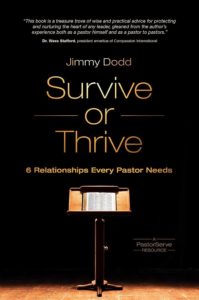
SURVIVE OR THRIVE: SIX RELATIONSHIPS EVERY PASTOR NEEDS
JIMMY DODD
From the Publisher: Every month 1,500 pastors burn out and leave the church. Learn how to beat the odds. The majority of pastors are not truly known—by anyone. They subconsciously isolate themselves from both staff and congregation so their insecurities, doubts, and failures aren’t exposed. Yet confiding in the wrong person can be a dead end at best and disastrous at worst. Former pastor Jimmy Dodd reveals how those in pastoral ministry can receive ongoing support, accountability, and restoration from relationships with a boss, counselor, trainer, mentor, coach, and good friend. Discover how you can move from surviving to thriving with the six relationships every pastor needs.
The JPC 60-Second Review: This must-read book looks at the front stage and the back stage of every pastor’s life and ministry, asking two important questions: how similar (or dissimilar) are they; and, more importantly, who, if anyone, do you allow to see both stages and examine them with you? Author Jimmy Dodd, president of one of America’s largest pastoral coaching ministries, writes that the answers to each of these questions is not what we would hope, not what is healthy, not what is needed for the church and the work of God, and not acceptable to God. He then walks us through the journey of understanding not just why we need to arrive at healthy answers to each of these questions, but how we can do so. Dodd takes the polish off the iconic, even idolatrous, image we pastors can have of ourselves and breed in others by daring to discuss pastors as human beings, fallen, and in need of a Savior before and after salvation, in need of a Lord as well. Our culture may glorify the strong, but God works through the weak, and true pastoral ministry begins when the pastor learns and embraces this fact: God is made strong in our weakness. And He builds us strong through the vehicle of community, a dynamic gathering of peers who dare to share life’s journey. This call to community leads thent to the second half of Survive or Thrive as it identifies and describes the six relationships every pastor needs in his or her life: a boss, a teacher, a pastoral coach, a counselor, a mentor, and a friend. Fact: the number one killer of ministers is isolation. Dodd’s research finds that 1500 pastors “die”, ie, burn out and leave the church every month. But not content to simply identify the problem, Dodd offers a solid book of wisdom in killing the killer. The great thing about this book is the real world, practical help it offers to every pastor: this book offers sound diagnosis, prescription, and prognosis to those who heed its message. The sad thing about this book is that those who need it most will be least likely to read it.
CREATIVE MINISTRY
HENRI J.M. NOUWEN
From the Publisher: Creative Ministry is a thoughtful examination of the various complex tasks that are part of ministry life. Separate chapters treat each of the five areas that Nouwen considers the primary responsibilities of the minister: teaching, preaching, counseling, organizing, and celebrating. He shows how these main functions are inextricably tied to the minister’s spiritual life and why they must be directed toward a creative dialogue with other Christians if they are to be rewarding. It is also essential, he maintains, that the minister leave himself open, take risks, and “lay down his life for his friends” in order to give new life.“There is today a great hunger for a new spirituality,” observes Nouwen, a hunger that requires new and creative forms of ministry. Citing numerous examples from his rich experience, the author offers practical advice for infusing daily pastoral work with meaning. The result is an insightful presentation and a resonant spiritual guide for every man and woman who wants to be of service.
The JPC 60-Second Review: One of the fundamental themes of Journey Pastoral Coaching is wrapped up in two words: Being and Doing. Healthy public ministry for Jesus – doing – is the expression of healthy private ministry in Jesus – being. Doing is the flow of being. Pastoral ministry, in its healthiest and most effective expression is just this. Nouwen expresses this dynamic flow of being and doing in “Creative Ministry,” even going so far as to show how it is lived out in what he calls the five primary responsibilities of pastoral ministry. Imagine a ministry life free of striving and filled with streams of life. Imagine a ministry life where the burden is light because what you are doing is simply the flow of Christ in and through you. This process is the point of “Creative Ministry.” The church world is filled with pastoral “flaming rockets,” those professionals obsessed with “success” and numbers will continue to burn out in ministry, a book on church growth techniques and success methods gripped tightly in their hands as they breathe their last breath. But those who last, those who not only survive, but thrive in a lifetime of healthy and effective ministry are those who focus their energies on doing as a flow of being, in other words, on the principles shared by this widely respected and wise guide, Henri Nouwen. Highly recommended.
ON PASTORING
H.B. CHARLES, JR.
From the Publisher: No one is ever fully prepared for the ministry. For pastors just starting out, those needing a little rebalancing, or those growing tired in the trenches, a short guide to the basics is a welcome relief.
In On Pastoring, H. B. Charles gives 30 instructive reflections on the pastor’s heart, leadership, and public ministry, covering topics like:
Cultivating personal godliness
Prioritizing your family
Guarding your ministry effectiveness
Planning, preparing, and preaching sermons
Balancing pastoral roles and duties
Being a pastor means wearing many hats, weathering lots of pressure, and bearing great responsibility. Let H. B. Charles be a trusted advisor as you do the serious work of shepherding a flock of God.
The JPC 60-Second Review: H.B. Charles writes a “real” book on pastoring – not a “theoretical” one written as a testimony to the author, but a book written as instruction, correction, and encouragement for the ordinary pastor. The author writes from 25 years of pastoral successes and failures, and he does so in a way that says failure need not be fatal, but can be functional in pastoral success. His blend of teaching, scripture and personal anecdotes is a perfect reading blend and his transparency is both liberating and refreshing. The book is an enjoyable, head-nodding read of 30 chapters of 5 pages or so each, and is divided into three parts: The Pastor’s Heart, The Pastor’s Leadership, and The Pastors’ Public Ministry. All three are excellent, but the 10 chapters on the pastor’s heart are excellent in their content and presentation – you’ll find yourself stopping often to reflect as again and again he lands on “those” places every pastor knows all too well: ministering to the audience of One; your call, heart health, legacy and more. His sections on leadership and public ministry are practical looks at everything from the planning of your preaching to developing a library, the ministry of meetings to weekly preparation – all so needed. “On Pastoring” is a must-read for young pastors, but lead and staff pastors, or for seminary students preparing for pastoral ministry. Again, this is a must-read.
THE JOURNEY OF MINISTRY
EDDIE GIBBS
Insights From a Life of Practice
From the Publisher: These days, everybody wants the latest killer app for successful ministry. But ministry is not plug-and-play technology. It is an art cultivated over a long-term journey of faithfulness and perseverance. In his most intimate book yet, Eddie Gibbs articulates a personal philosophy of ministry born from his storied career in teaching and pastoral ministry. Through images from his own life and family, Gibbs shows how effective ministry is a matter of walking slowly with the family of God, overcoming hurdles and facing challenges together. He explains how the early church offers helpful networking models for connecting in a fragmented technological age. Linking fresh biblical exposition with our contemporary realities, Gibbs gives practical advice for welcoming people into the family and helping them live out God’s intentions for them. If you want your ministry to last, learn from those who have gone the distance. Discover here insights that will help you lead and serve for the long haul.
The JPC 60-Second Review: I admit that I am a fan of Eddie Gibbs’ books. Church Next and Leadership Next are two favorites. The reason, I think, is that Gibbs writes of classic themes in fresh expressions. He is not “of the moment” even as he is “in the moment.” He writes of things transcendent and eternal rather than simply catchy and hip. The Journey of Ministry is another great example of this quality. In TJOM, Gibbs takes the analogy of a long journey and uses it to plunge the depths of what is required to not only arrive at the destination of the journey, but to fully live it along the way. One of the overriding themes of TJOM – and an overriding of Journey Pastoral Coaching – is the whys and hows of journeying together in Christ. Gibbs serves as the reader’s guide in considering not just the importance, but the joy and the beauty, of team building, networking, and communicating with other journey members. In the security of Christ, and the support of others, we are then free to fully walk in Christ, overcome whatever hurdles we encounter and even embrace dying to self as the only way to fully live. His chapter on “Dying” is a must read for every follower of Christ as Gibbs takes us through the shared human experience of physical death as a way of understanding what awaits us just beyond the door of dying to self in Christ. Cultivating your life for a lifetime of healthy and effective ministry: Gibbs writes on the very mission statement of Journey Pastoral Coaching. Highly recommended.
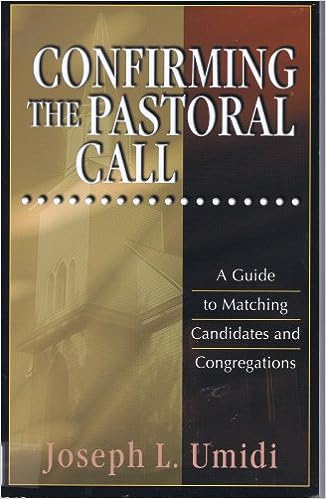
CONFIRMING THE PASTORAL CALL Joseph L. Umidi
JOSEPH L. UMIDI
From the Publisher: With humor and insight born of experience, Joseph Umidi tells candidates how to approach a selection process by clarifying personal vision for ministry, connecting heart-to-heart with decision makers, and asking the right people the right questions. Search committee members will find guidance in analyzing a church’s readiness for change, determining what is most needed now, and judging a candidate’s strength in meeting those needs. Eleven appendixes provide key model documents that will help the decision-making process.
The JPC 60-Second Review: Only eternity will reveal how many churches and pastors wish they had read this guide BEFORE AND DURING the pastoral search process. In far too many cases, the search for a new pastor is an overly simple two steps: a “spin-the-wheel” Q&A between the search committee and candidate; and a congregational vote on his try-out sermon on the soon-after Sunday morning. Many marriages are comprised of a quality man and a quality woman. However, just because each is a quality individual, it does not follow that they will have a quality marriage: a focused and in-depth discovery process is first required. The same is true in finding the right pastor for a local church. Umidi’s book guides both church and pastor through the pastor, identifying the subjects to study, the questions to ask, the factors to identify. Your church needs this book.
WHAT THEY DIDN’T TEACH YOU IN SEMINARY
JAMES EMERY WHITE
From the Publisher: In churches today, there are ever fewer older pastors speaking into the lives of younger leaders, and fewer younger leaders feeling there is much to be learned from the experience of their elders. Street-smart wisdom is gone from training as there are many men and women preparing pastors who have never themselves pastored a church. Intriguingly, even older, more seasoned pastors yearn for insight into their task, as they remain “undiscipled” in the school of leadership.
In What They Didn’t Teach You in Seminary, veteran pastor James Emery White provides the kind of mentoring young pastors desperately need but cannot get from academia or leadership books. These “from the trenches” insights will help them transform their relationships with staff and parishoners, develop healthy boundaries, deliver hard truths, avoid spiritual pitfalls, use their time effectively, and much more.
The JPC 60-Second Review: White identifies a major – major – problem with ministry training in the 21st century: it’s being done by theorists rather than practitioners. The reason? One can point to accreditation societies’ insistence on academic requirements for faculty in the place of ministry experience. This is not to speak against the value or importance of a highly educated faculty, but it is to speak against the vacuum or relevance of a merely educated faculty, one that has not served with equal distinction in local church ministry. Educational background without experience is detached from real world ministry, it is to exegete the Scriptures, but not the world in which those Scriptures are to be lived. James Emery White not only identifies the problem, but he addresses it with this crash course in real world pastoring as addresses the “uh oh” issues every first pastorate presents: boards, finances, administration, dealing with the opposite sex, the pastor’s family, sabbath, relationships, time managements, etc, etc. Chapters are brief and to the point; explanations are written as if they are the recorded answers of an interview – fresh. energetic and real. These are not complete answers to complex questions, but the words of wisdom a pastoral coach might share, words of wisdom meant to launch a self conversation and study on the subject. White is a favorite JPC author, always thoughtful and practical and so very, very helpful. Highly recommended.

DANGEROUS CALLING
PAUL DAVID TRIPP
From the Publisher: After traveling the globe and speaking to thousands of churches worldwide, Paul David Tripp has discovered a serious problem within pastoral culture. He is not only concerned about the spiritual life of the pastor, but also with the very community of people that trains him, calls him, relates to him, and restores him if necessary.
Dangerous Calling reveals the truth that the culture surrounding our pastors is spiritually unhealthy—an environment that actively undermines the wellbeing and efficacy of our church leaders and thus the entire church.
Here is a book that both diagnoses and offers cures for issues that impact every member and church leader, and gives solid strategies for fighting the all-important war that rages in our churches today.
The JPC 60-Second Review: Every pastor in America should pull the blinds on his study, turn off the phone, get a cup of coffee and spend two days reading “Dangerous Calling” by Paul David Tripp. Every individual preparing for life as a pastor should spend five days reading and taking notes on Dangerous Calling, followed by a series of sit-downs with his or her pastor. Tripp doesn’t just “draw back” the veil on the internal processing of many pastors, he rips it down in what could be the most raw book ever written on pastoring. The “glamour” of pastoring not churches, but imperfect people is burned away. The pastor-as-automatic-spiritual-giant model is exposed as not only impossible, but dangerous, demonstrated by a long track record of families, churches and pastors destroyed by unrealistic goals and spiritually thin pastors. Dangerous Calling is a dose of real, a painful but healing read. I hated it. And I loved it. This is the top of the top shelf if you’re man (or woman) of God enough to take it.
THEY CALL ME PASTOR
H.B. LONDON & NEIL WISEMAN
From the Publisher: “Pastor. What a beautiful word. What a unique relationship it conveys….Each time someone calls me pastor, I am awestruck…. It humbles me, but I am grateful. There is no higher privilege than being a pastor.” So writes H.B. London, who once again joins with his frequent collaborator Neil Wiseman to encourage and inspire church leaders with their most passionate, stirring book to date.
“They Call Me Pastor” is an unabashed celebration of the deeply felt bond between a pastor and the congregation he serves – a testimony to the love of God and the miracles it can work in the lives of a shepherd and his flock if only His love is shared and allowed to flourish.
The JPC 60-Second Review: Imagine walking into the study of one who has served his congregation as pastor for thirty or forty years. Not his office, but his study – the secret place where he sought God, cried out to God, read and wrestled with the Word of God. Imagine sitting with him, one-on-one and asking him what it is like to pastor God’s people. You ask him to tell you about Sundays and Mondays, loving people, prayer, making the hard decisions and more. One by one you name the subject and he answers briefly in the quiet of his personal sanctuary. As he speaks, you listen with ears and with heart, remembering them in your mind while recording them on paper. With his permission, you then commit them to paper and publish them in a book for pastors. Just such a book is They Call Me Pastor. This is a comfortable, nod the head and smile book for pastors, sure to ring true with the theology, the thinking and the heartbeat. Enjoy.
THE DISCIPLE-MAKING PASTOR
BILL HULL
From the Publisher: Christ commanded the church to make disciples, to produce people who love and obey God, bear fruit, and live with joy. The crisis at the heart of the church is that we often pay lip service to making disciples, but we seldom put much effort behind doing it. For the pastor who is ready to put words into action, The Disciple-Making Pastor offers the inspiration and practical know-how to do so.
Bill Hull shows pastors the obstacles they will face, what disciples really look like, the pastor’s role in producing them, and the practices that lead to positive change. He also offers a six-step coaching process to help new disciples grow in commitment and obedience, and practical ideas to integrate disciple-making into the fabric of the church.
The JPC 60-Second Review: Thank God for Bill Hull and The Disciple-Making Pastor. This is a book that rejects the pastor-as-hand-holder, pastor-as-CEO, pastor-as-attendance-builder and calls pastors back to their biblical, let me repeat, biblical, ministry: making disciples. Hull is a no-nonsense, non-apologetic apologist for discipleship as the priority and mission of the church, and so, of the pastor. For a pastor to do otherwise is to do other than that prescribed by the New Testament. Hull holds up the biblical text as a bull’s eye with no outer rings: the pastor is either making disciples who make disciples or he is missing the mark. Having shaken us out of any attraction to following the latest fads or culturally-prescribed models, Hull not only prescribes a return to the pastor as disciple-maker, but he then describes the pastor as disciple-maker with practical, real world helps. This is a book to read and reread, a book to study and a book by which to study your ministry, your church and your church’s ministry in the world. Warning: those who see the pastor as hand-holder, CEO or crowd attraction will not warm to this pastoral model or ministry. But, Pastor, Jesus told us we would have to choose between the approval of people and His approval; Jesus told us we would have to choose between easy belief and being disciplined followers of the One who commands us to be and to make disciples.
THE GOSPEL SHAPED LEADER
SCOTT THOMAS
From the Publisher:
How do you grow as a leader in the church? Should you read church growth books? Take a few seminars? Or just wing it? Scott Thomas, former President of Acts 29, church planter, and pastor has a different approach. He unpacks how leaning on Jesus empowers not just your teaching, but also grows the humility and biblical wisdom you need to lead.
Through many years of ministry experience, Thomas has seen the importance of the “soft skills” of leadership—empathy, kindness, and listening—and how not developing those skills negatively impacts churches. Yet simply knowing the need for what the world calls “emotional intelligence,” doesn’t guarantee growth in these areas. But understanding and applying the gospel will bring transformation.
Thomas gives practical, specific help in navigating spiritual and emotional challenges that leaders commonly encounter and unpacks how a gospel-shaped response brings healing. Complete with reflection questions at the end of each chapter to encourage self-inventory and further study, The Gospel Shaped Leader will encourage church leaders of all ages in the categories of self-awareness, self-management, relational awareness, and relational management, with the goal of recognizing strengths and weaknesses so they can continue growing more like Christ.
The JPC 60-Second Review: In The Gospel Shaped Leader, Scott Thomas does the church a great service in focusing on the development of the leader rather than leadership. While the church continues to chase after church growth and its cottage industry of techniques and programs designed to attract people to the church and then move them in the directions leaders want them to go, Thomas focuses on the soul of the leader. His focus is squarely on how the Gospel forms us as leaders: as we look to the message of the Gospel, we see how it forms us in Christ’s character, and, as leaders, how it forms us as leaders conformed to Christ. Thomas argues rightly that this kind of leader will then form healthy disciples and ministries. He argues that this approach takes the pressure off leaders and places them in the sweet spot of being disciples who disciples, pastors who pastor. A refreshing and encouraging read for any pastor. This is a book every board should give as a gift to their pastor.
Recent Tweets
JPC Instagram
© [2015] — Journey Pastoral Coaching


